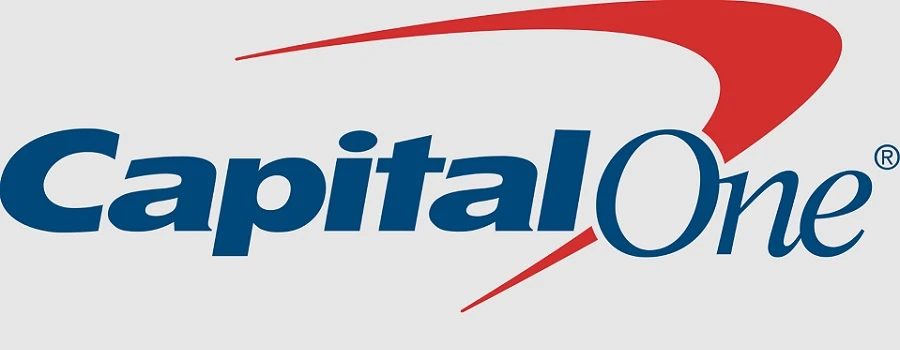Capital One Home Equity Loan January 2026

Tap into your home’s equity for financial flexibility
How much do you want to borrow?
Checking your options won’t affect your credit
At Bills.com, we strive to help you make financial decisions with confidence. While many of the products reviewed are from our Service Providers, including those with which we are affiliated and those that compensate us, our evaluations are never influenced by them.
| Amount | Currently don't offer |
| Term | |
| Rates | |
| Min. Credit Score |
Offers a credit card with low introductory rates.
Offers a referral program with preferential rates and service through LoanDepot.
Doesn’t offer home mortgage products.
Credit card offerings are beneficial for the short-term.
Does Capital One Offer Home Equity Loans or HELOCs?
According to Capital One’s website, the bank has discontinued its home-loan business. Not only does Capital One no longer accept new applications, it is also no longer servicing past loans.
However, Capital One does offer potential alternatives for people looking to borrow money. It has a referral arrangement with Loan Depot, which offers refinancing loans. A cash-out refinance loan can be an alternative to a home equity loan.
As an alternative to a HELOC, the best options that Capital One offers are credit cards. The sections below will explain how these other borrowing approaches might work as alternatives to a home equity loan or a HELOC and the drawbacks.
Who is Capital One Bank?
Capital One Bank is one of America’s best-known banks because of its high-profile advertising campaigns and extensive branch network. While Capital One has limited options if you are looking for a home equity loan, it does have alternatives you might want to consider for your borrowing needs.
According to the FDIC, Capital One has a history dating back to 1933. Currently, the bank has more than 300 locations spread across nine states. Capital One also has a robust online presence, allowing it to reach customers more broadly.
Capital One has more than $300 billion in customer deposits, giving it a substantial base of resources. Since Capital One has discontinued its home-lending business, this review will focus on other options that the bank offers potential borrowers.
Capital One Home Equity Loan Alternatives
Referral to Loan Depot home equity loan
Although Capital One has discontinued its home-lending business, it does have a referral relationship with Loan Depot. That relationship offers customers who are referred to Loan Depot through Capital One’s website up to $1,500 in lender credits when they sign up for a loan with Loan Depot.
Those lender credits can be applied to closing costs, which do not include interest-rate discount points. The amount of lender credit a given borrower receives will be the lesser of $1,500 or the total closing costs.
In addition to the referral benefit for customers coming to Loan Depot through Capital One, Loan Depot offers substantial resources. It is the nation’s fifth-largest retail lender. Loan Depot has funded more than $275 billion in loans, and helps more than 27,000 customers every month.
Loan Depot’s offerings include refinance loans. Under some circumstances, a cash-out refinance loan can be used as an alternative to a home equity loan. Taking out a cash-out refinance might make sense if you get lower rates (including fees) than your existing mortgage.
Unfortunately, Loan Depot offers little information about the specifics of its loans, unless it is given information about a potential borrower’s property and financial situation. However, Loan Depot does offer a team of licensed lending officers who can guide potential borrowers through the bank’s loan options and application process.
Capital One credit card
While credit card interest rates are generally higher than HELOC rates, a borrower who needs credit for a relatively short period may find a credit card with a 0% introductory rate to be a more cost-effective option. Capital One offers three credit cards that might be attractive in that situation:
- VentureOne Rewards Card
- Quicksilver Rewards Card
- SavorOne Rewards Card
While the rewards characteristics of these cards differ, some of their other terms are the same:
- Introductory interest rate: 0%
- Length of introductory interest rate period: 15 months
- Interest rate range after introductory period: 16.49% to 26.49%
- Balance transfer fee: 3%
- Credit-score requirement: excellent credit
- Besides their credit terms, these three cards all offer rewards that could be used to lower your cost of using credit
How to Apply for Capital One Credit Cards
Borrowers who decide that a zero-interest introductory interest rate on a credit card is a better way to access a line of credit than a HELOC can apply for one of these credit cards through the Capital One website. Potential borrowers can get pre-approved on the Capital One website by entering some information about their financial situation. (This information will not trigger a credit check that could affect their credit score.)
If a borrower is pre-approved, Capital One’s website will then present the available credit card options to them. Only once they choose one of these cards and decide to go forward with the application process will a credit check take place.
If someone chooses to borrow against home equity by getting a cash-out refinance loan with Loan Depot, one of Loan Depot’s loan officers would guide them through the refinancing process. Interested borrowers can arrange to work with a Loan Depot loan officer through the bank’s website.
Capital One Expert and Consumer Ratings
Because Capital One has discontinued its home-loan business, the bank does not appear in any of the home lending consumer-review rankings that Bills.com reviewed.
As a more general assessment of the organization, Capital One was given a rating of 1.3 out of 5 on TrustPilot. The Better Business Bureau (BBB) compiled a 1.13 out of 5 average customer review rating from Capital One. The BBB itself gave Capital One an A- rating, though Capital One is not accredited with the BBB.
Capital One Pros
Capital One’s best line-of-credit options are for customers with excellent credit who only need to borrow for a short time. In that situation, Capital One’s 0% introductory rate cards might be a cheaper option than a HELOC.
The 15-month introductory period might give a borrower a decent amount of time to access the credit line with no interest cost. (For longer-term borrowing, though, this option would become more expensive.)
For people who want to borrow against home equity with a set repayment period, the only option available through Capital One would be their referral program with Loan Depot. In that situation, the referral credit of up to $1,500 towards closing costs could represent a substantial savings. However, since the actual loan terms will depend on the specific situation, potential borrowers should compare all these terms carefully against other alternatives.
Capital One Cons
Home equity lending is clearly outside the scope of what Capital One has chosen to offer. From a big-picture standpoint, it is worth considering other borrowing approaches. Depending on the situation, it may turn out that a zero-interest introductory rate credit card or a cash-out refinance loan through Loan Depot is a better fit.
However, if a borrower decides that a home equity loan or a HELOC is the best solution, then the only avenue available would be to consider a different lender that provides a more suitable range of products.
Alternatives to Capital One
Here are some of the alternatives to Capital One that might provide more appropriate borrowing options for someone looking for a home equity loan or a HELOC.

Tap into your home’s equity for financial flexibility
How much do you want to borrow?
Checking your options won’t affect your credit
